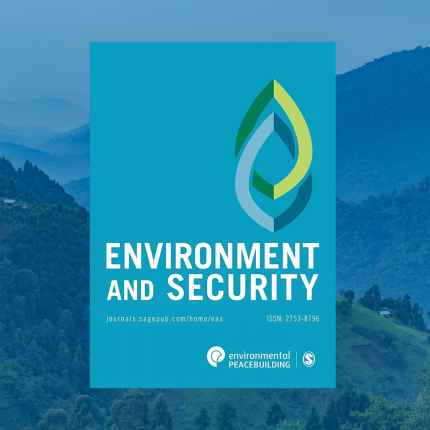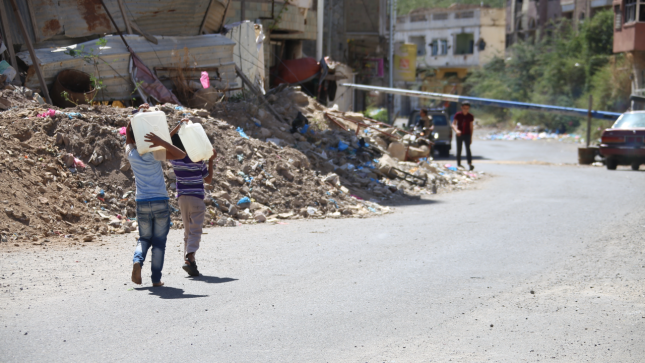-
New Journal | Q&A with Environment and Security’s Editorial Team
›
Environment and Security is a new journal published by the Environmental Peacebuilding Association and SAGE Publishing. The journal represents the evolution of a field of study that began in earnest in the 1990s and has emerged today—in an era increasingly defined by climate change—as an issue area of paramount importance. ECSP spoke with the journal’s editorial team about what sparked its launch and what readers can expect.
-
Africa’s First Climate Summit: From Victim to Leader?
›
The UN Environment Programme has described Africa as the most vulnerable region in the world to climate change. Despite only being responsible for 3% of global emissions, the continent has been battered by extreme weather events, including droughts, cyclones, wildfires, and sandstorms. One in three people across Africa faces water scarcity. The continent’s agricultural sector, which represents a significant share of African countries’ GDP and employment, is highly exposed to climate change.
-
China’s Belt and Road Initiative: Powering a Low or High Carbon Future?
›China Environment Forum // Guest Contributor // Vulnerable Deltas // September 28, 2023 // By Chuyu LiuChina’s Belt and Road Initiative (BRI) can significantly affect the country’s domestic and overseas energy transition and decarbonization agenda. Electricity projects in China’s BRI investments, contrary to popular impressions of being part of a monolithic “project of the century,” have divergent implications for the host country’s shift away from coal-based power plants.
-
Disasters in Armed Conflict Zones: Silver Linings or Total Devastation?
›
When catastrophic floods struck civil war-ridden Libya in the late summer of 2023, the catastrophe caused over 10,000 deaths and wreaked immense destruction throughout the nation’s northeastern regions. But because none of the warring factions were in full control of the country and international responders were concerned about being caught in the crossfire, relief efforts were delayed and limited. This confluence of factors amplified human suffering, particularly in Libya’s remote and worst-affected areas.
-
Q&A: Peter Schwartzstein on Conflict & Climate in Libya
›
In the wake of Storm Daniel, which hit Libya in September 2023, ECSP spoke with Wilson Center Global Fellow Peter Schwartzstein about the storm’s tragic fallout and its connection to conflict. As an environmental journalist and consultant, Schwartzstein has written extensively about the climate-conflict nexus and other environmental and geopolitical issues, primarily in the Middle East, North and East Africa.
-
ECSP Weekly Watch | September 18 – 22
›
A window into what we are reading at the Wilson Center’s Environmental Change and Security Program
Converging Crises: Pakistan Flood Victims Face Rising Hunger
According to FAO, Pakistan ranks among the top-ten world producers of wheat, cotton, sugarcane, and mango—and it is the 10th largest producer of rice. But Pakistan is also atop another world ranking: vulnerability to the impacts of global warming.
-
Building Back China’s Great Wetland Wall: Q&A with Paulson Institute Wetland Team
›Known as “Earth’s kidneys,” wetlands provide a variety of ecological benefits: habitats for diverse species, flood containment, pollutant purification, and carbon absorption. But in China, wetland loss and degradation has exposed people to the whims of climate change. What has China done to protect its wetlands, and how should the country better adapt to climate change with wetlands—a “Great Wall” made of mudflats, mangroves, and waterbirds? Jianbin Shi and Xiaojing Gan, two China-based wetland experts from the Paulson Institute, may enlighten us.
-
Shifting the Climate Security Narrative: How the Department of Defense Can Lead
›
In 2021, US Defense Secretary Lloyd J. Austin III referred to climate change as an “existential threat”—a term traditionally reserved for nuclear weapons. Yet two years and several strategic plans later, tangible progress to mitigate and prepare for this threat remains elusive, especially on the international scale where the greatest impacts could be realized.
Showing posts from category climate change.











